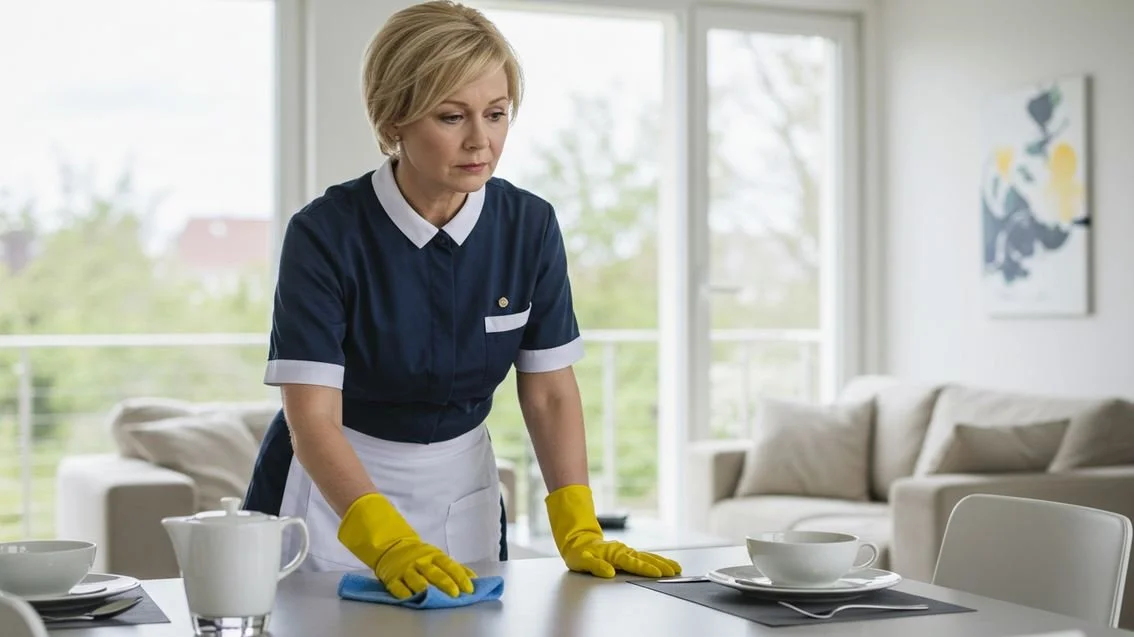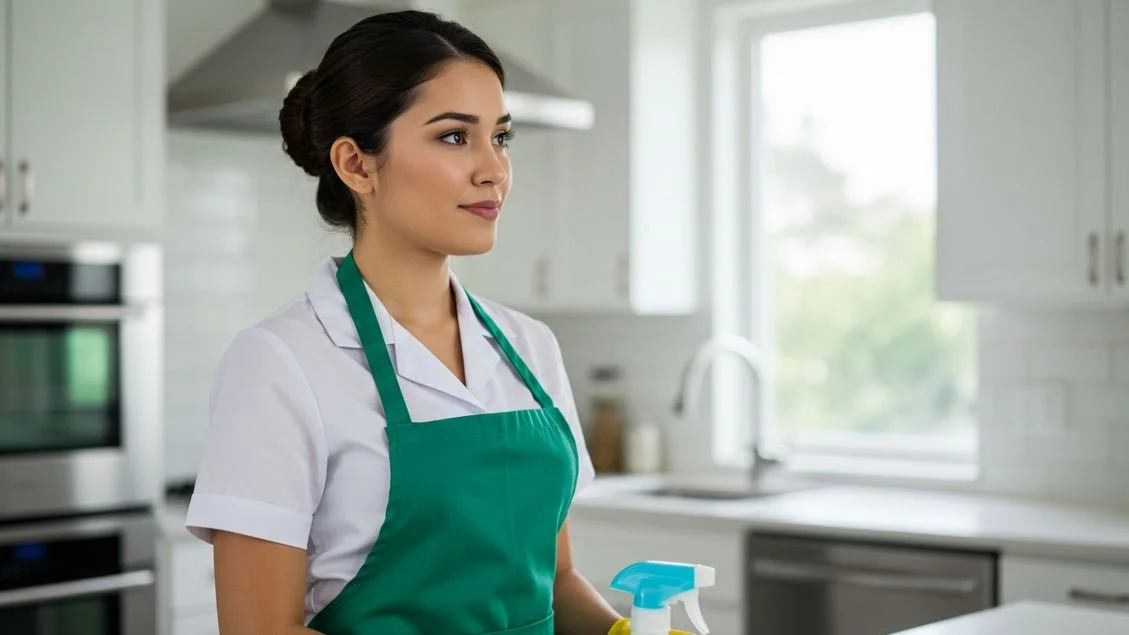Can You Mix Pine-Sol And Vinegar? (Solved)
Ever catch yourself looking at two bottles under your sink and thinking, “Hmm… if I mix these together, it’s gotta clean even better, right?” You’re definitely not alone.
Pine-Sol and vinegar are two of the most popular go-to cleaners, so it’s only natural to wonder if doubling them up is the ultimate hack.
Spoiler alert: it’s not the magical combo people hope for.
In fact, mixing the two is more hassle than help. Let’s break it down so you know exactly why, and what to use instead.
In this post, I’ll explain if you can mix Pine Sol and Vinegar.
Can You Mix Pine-Sol And Vinegar?
No, you should not mix Pine Sol and vinegar. It’s not because the two are going to explode or create something super toxic like a bleach mix would. The real problem is effectiveness.
Pine-Sol has a specific formula with surfactants, detergents, and in some versions, disinfectants.
Vinegar is acidic, which messes with how Pine-Sol is meant to work.
So instead of getting a powerhouse cleaner, you actually end up with a weaker, less effective mix.
Think of it like putting milk in soda. It doesn’t taste better, it just ruins both.
It’s also worth noting that Pine-Sol already has its own scent and cleaning chemistry balanced out. Tossing vinegar in there isn’t improving anything. It’s just making a sticky, cloudy mess that’s harder to clean up.
Also Read: Pine Glo Vs Pine-Sol
What Happens If You Mix Pine-Sol And Vinegar?
The science is simple but kind of fascinating. Let me explain:
Pine-Sol is slightly alkaline. Vinegar is acidic. When you pour them together, the acid neutralizes some of the cleaning power in Pine-Sol. That means the surfactants don’t do their job as well, and instead of shiny clean surfaces, you could end up with streaks or residue.
And then there’s the smell.
Pine-Sol has that distinct pine fragrance that some people love, while vinegar has a strong, sharp odor. Put the two together and you’re not going to get a nice balance.
You’re going to get something sour and strange that lingers.
On top of that, the mix can sometimes leave a film on counters, floors, or glass. Instead of that squeaky-clean finish, you’re left buffing and wiping for way longer than you need to. And no one has time for that.
Is It Dangerous To Mix Vinegar And Pine-Sol?
No, it’s not dangerous in the way mixing bleach with vinegar is. No toxic gases are going to fill your kitchen. You’re not going to end up coughing or burning your lungs.
But just because it’s not life-threatening doesn’t mean it’s harmless.
The mixture can irritate sensitive skin. Some people find the odd odor mix gives them headaches. And if you’re cleaning sealed wood, polished stone, or delicate surfaces, that acid-alkaline clash can dull finishes over time.
Also Read: Can You Mix Pine Sol And Bleach?
So the risk here isn’t “call poison control.”
The risk is wasting product, making your space smell weird, and possibly damaging surfaces you’re trying to protect. Which, let’s be honest, makes the mix a total lose-lose.
Better Alternatives You Can Mix Vinegar With
Now, vinegar on its own is still an awesome cleaner. It’s cheap, natural, and gets rid of odors like a champ. You just need to know what to pair it with.
Luckily, there are plenty of safer, smarter combos that actually work:
#1 Water
The simplest option is the best.
Diluting vinegar with water makes it safe for everyday cleaning. A spray bottle with half vinegar and half water is perfect for countertops, glass, and even deodorizing fabrics.
You don’t need anything fancy, this mix does the trick for daily wipe-downs.
#2 Baking Soda
This is a classic pairing you’ve probably seen in every cleaning hack video ever.
Baking soda is alkaline, so when you sprinkle it on a surface and add vinegar, it foams up like a science project. That fizzing action helps loosen grime and deodorize. It’s especially handy for drains, sinks, and ovens.
Just don’t bottle them together ahead of time as the reaction works best on the spot.
Also Read: 8 Awesome Pine Sol Alternatives
#3 Dish Soap
Mixing vinegar with a bit of mild dish soap makes an excellent all-purpose cleaner.
The dish soap is great at cutting through grease and grime on surfaces like stovetops, countertops, and sinks, while the vinegar helps dissolve hard water stains, soap scum, and mineral buildup.
A lot of people swear by this combo for cleaning showers because it breaks through soap scum so well.
Just be sure to dilute it properly (usually a 1:1 ratio of vinegar and water, plus a squirt of soap) to avoid any potential residue.
#4 Essential Oils
Vinegar works great, but the sharp, sour smell can be a bit much for some people.
Adding just a few drops of lemon, lavender, eucalyptus, or tea tree oil to your vinegar cleaning spray can mask the scent and turn it into something bright and refreshing.
Plus, many essential oils have natural antibacterial or antifungal properties, giving your cleaner an extra boost.
It’s a small upgrade that makes cleaning feel a little more spa-like.
#5 Lemon Peels
Instead of tossing lemon, orange, or grapefruit peels, save them for a DIY upgrade.
Place the peels in a jar and cover them completely with white vinegar. Seal it up and let the mixture steep for about two weeks (shake it occasionally).
Over time, the vinegar absorbs the citrus oils, resulting in a cleaner that not only works just as well as plain vinegar but smells noticeably better, bright, fresh, and slightly sweet.
This citrus-infused vinegar is perfect for wiping down surfaces, removing water spots, or polishing fixtures.
Bottom Line
Mixing Pine-Sol and vinegar might sound like a good cleaning hack, but it’s really not. They cancel each other out, leave behind weird smells, and can even make more work for you.
The smarter move is to use each cleaner separately: Pine-Sol for deep cleaning and disinfecting, vinegar for natural deodorizing and surface shine.
And if you love the idea of mixing vinegar with something else, go for safe combos like water, baking soda, dish soap, essential oils, or even lemon peels. These give you actual cleaning power without the drawbacks.

